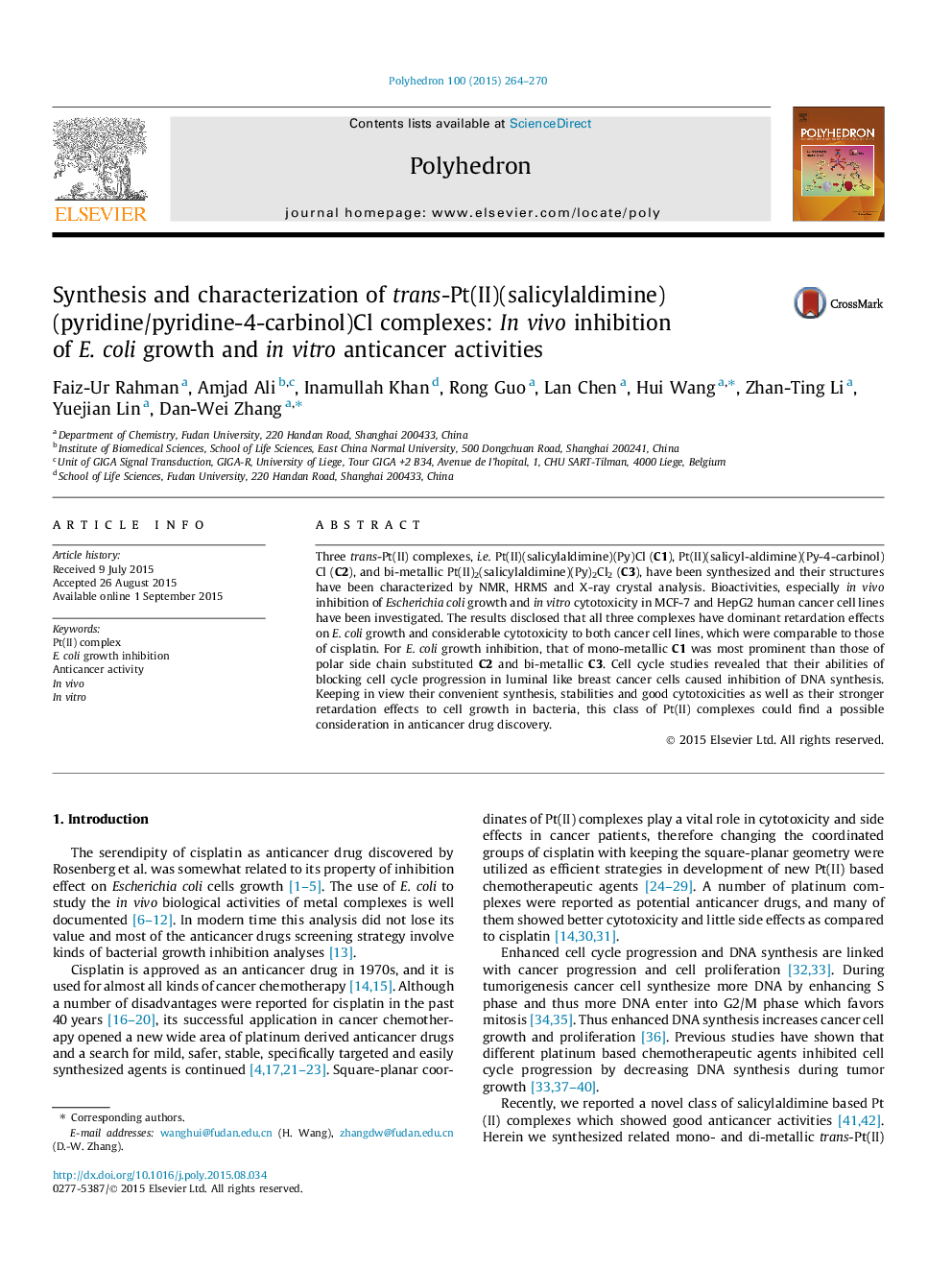| Article ID | Journal | Published Year | Pages | File Type |
|---|---|---|---|---|
| 1335941 | Polyhedron | 2015 | 7 Pages |
Three trans-Pt(II) complexes, i.e. Pt(II)(salicylaldimine)(Py)Cl (C1), Pt(II)(salicyl-aldimine)(Py-4-carbinol)Cl (C2), and bi-metallic Pt(II)2(salicylaldimine)(Py)2Cl2 (C3), have been synthesized and their structures have been characterized by NMR, HRMS and X-ray crystal analysis. Bioactivities, especially in vivo inhibition of Escherichia coli growth and in vitro cytotoxicity in MCF-7 and HepG2 human cancer cell lines have been investigated. The results disclosed that all three complexes have dominant retardation effects on E. coli growth and considerable cytotoxicity to both cancer cell lines, which were comparable to those of cisplatin. For E. coli growth inhibition, that of mono-metallic C1 was most prominent than those of polar side chain substituted C2 and bi-metallic C3. Cell cycle studies revealed that their abilities of blocking cell cycle progression in luminal like breast cancer cells caused inhibition of DNA synthesis. Keeping in view their convenient synthesis, stabilities and good cytotoxicities as well as their stronger retardation effects to cell growth in bacteria, this class of Pt(II) complexes could find a possible consideration in anticancer drug discovery.
Graphical abstractMono-metallic trans-Pt(salicylaldimine)(pyridine/pyridine-4-carbinol)Cl and di-metallic trans-Pt2(salicylaldimine)(pyridine)2Cl2 complexes were synthesized and analysed in solid state using single crystal X-ray analysis. These complexes showed good in vivo E. coli growth inhibition and in vitro cytotoxicities in MCF-7 and HepG2 human cancer cell lines, what was comparable to those of cisplatin.Figure optionsDownload full-size imageDownload as PowerPoint slide
